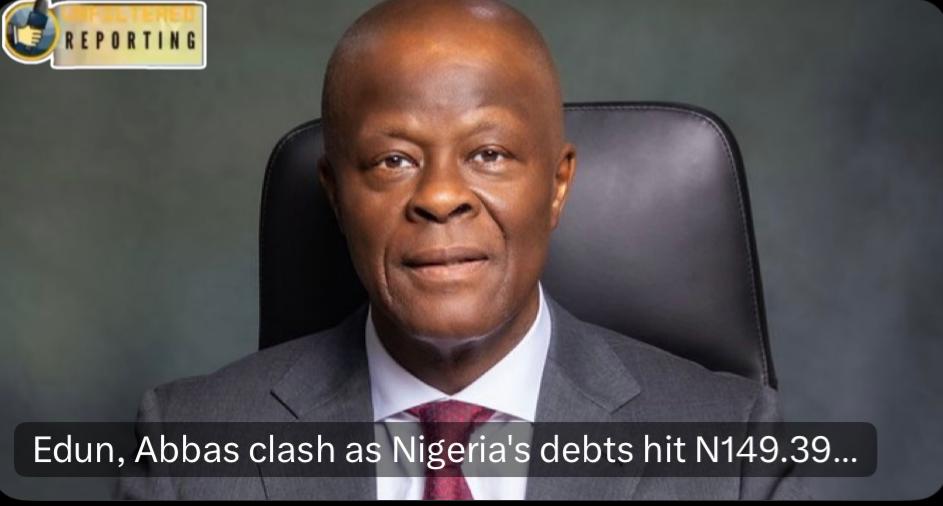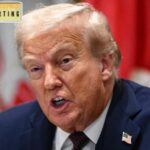Finance Minister Wale Edun, Speaker Abbas Tajudeen in Public Dispute Over Nigeria’s Debt Burden

A fresh controversy has emerged over Nigeria’s mounting debt stock after the Minister of Finance and Coordinating Minister of the Economy, Wale Edun, and the Speaker of the House of Representatives, Abbas Tajudeen, presented conflicting interpretations of the country’s debt situation on Monday.
The two senior officials clashed during the 11th Annual Conference and General Assembly of the West Africa Association of Public Accounts Committees (WAAPAC) in Abuja, where the issue of fiscal transparency and debt management dominated discussions. In a strongly worded presentation, Speaker Abbas Tajudeen expressed deep concern about the pace of Nigeria’s borrowing, describing the nation’s debt profile as alarming and unsustainable.
He pointed to the latest Debt Management Office (DMO) report which put Nigeria’s total public debt at ₦149.39 trillion as of March 31, 2025. According to him, this figure translates to a debt-to-GDP ratio of about 52 percent, far exceeding the statutory benchmark of 40 percent. Abbas warned that such an upward trajectory posed serious risks to economic stability and future development.
He argued that the country was already spending a disproportionate share of its earnings on debt servicing, thereby shrinking the fiscal space needed to address pressing social and infrastructural challenges. The Speaker urged parliamentarians across West Africa to intensify oversight on public borrowing and ensure that loans are tied strictly to productive ventures that can repay themselves over time.
"The reality,” Abbas stressed, “is that we are borrowing beyond our means, and the burden of repayment is being shifted onto generations yet unborn.” Finance Minister Wale Edun, however, countered this assessment with a more optimistic perspective. While he acknowledged the DMO’s figures, Edun argued that the debt profile should not be judged solely by its nominal size. He maintained that the government was fully aware of the risks and had adopted policies to ensure debt sustainability. According to him, recent economic reforms, including revenue mobilisation measures, subsidy removal, and policies aimed at attracting investment, were already helping to stabilise the fiscal environment.
Edun insisted that Nigeria’s debt-to-GDP ratio, when placed in a global context, remains moderate compared to several other developing economies. He emphasised that the administration was focusing on concessional and project-linked financing rather than expensive commercial borrowing.
“We are not facing a debt crisis,” he assured. “What we have is a manageable situation that is being addressed with bold reforms and prudent you strategies.” The DMO’s quarterly report, which both men referenced, attributes much of the increase in debt to the depreciation of the naira, which has sharply raised the local currency value of external obligations.
Analysts note, however, that while exchange rate fluctuations play a role, Nigeria’s continued reliance on borrowing to fund budget deficits remains a structural weakness. The rising cost of debt servicing has also left little room for spending on critical sectors such as health, education, and infrastructure.
The public disagreement between the Speaker and the Finance Minister has reignited the broader debate over how Nigeria should navigate its fiscal challenges. On one hand, lawmakers are demanding tighter controls to prevent reckless accumulation of debt, while on the other, the executive is urging patience and confidence in its reform agenda. Economists argue that the truth lies somewhere in between: although Nigeria’s debt-to-GDP ratio may not yet signal a crisis, the country’s weak revenue base makes its debt burden particularly heavy.
For millions of Nigerians, the argument is not merely about figures. With inflation rising, the naira under pressure, and unemployment still high, the real concern is whether borrowed funds are being channeled into projects that can deliver jobs, growth, and improved living standards.
The clash between Edun and Abbas is expected to set the tone for further debates in the National Assembly as the government prepares its next budget, with the central question being whether Nigeria can strike a balance between borrowing for growth and safeguarding its long-term financial health.









